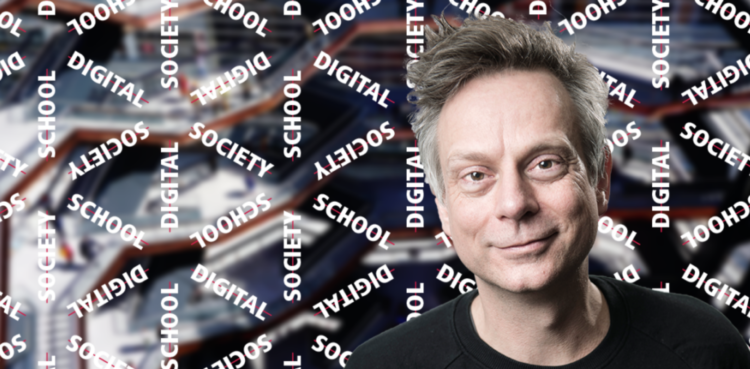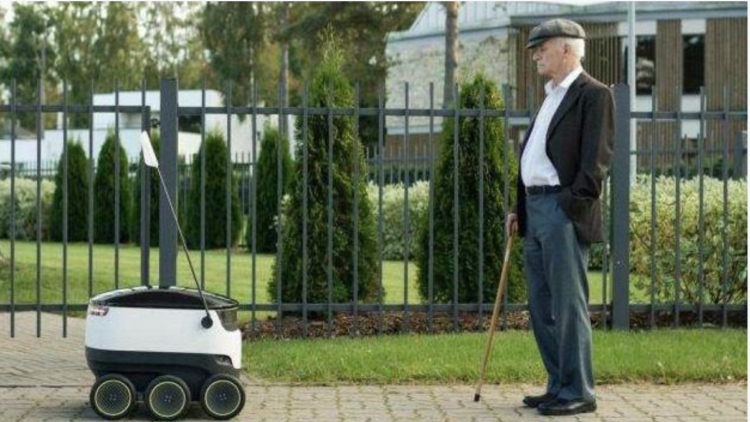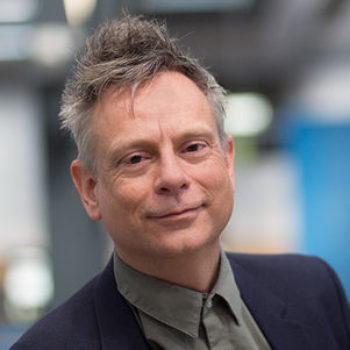Upcoming Events in May ’19
Event 1 : 08/05/2019
Event 2 : 15/05/2019
Event 3 : 29/05/2019
EVENT 1 : MIC DROP #12 – THINGS THAT PREDICT
MIC DROPS
The DSS Mic Drops are inspirational, interactive, provocative talks given by expert researchers and practitioners, on topics that relate to design, tech, societal challenges and how we can make the world a better place by integrating technology more wisely and humanely.
Things that Predict
If the Things we use know our future, then the experience of surprise, failing and spontaneity are at risk.
The more complex Things become, the more we depend on predictions to be able to anticipate our behavior.
ABOUT
The Things of the future are ‘Changing Things’, that are part of a system. Things are now often composed on the fly from a variety of networked resources, both physical and digital, according Redström & Wiltse (2019). With machine learning mechanisms the Changing Things will have knowledge on possible futures before the user has this knowledge.
With complex behavior of the Thing, anticipation on expected results is steering the interaction. We use predictions made by the Thing to simulate this behavior upfront. The more complex the Thing is, the more we will depend on the predictions made to understand the world. What does this mean for the design space of these Things? What will happen with experiences as surprise, failing and spontaneity, if the Things we use know our future?
ISKANDER SMIT
is a visiting professor and PhD Candidate at Delft University of Technology. He is coordinating PACT research program and Cities of Things Delft Design Lab.
With the rise of AI (artificial intelligence) combined with IoT (internet of things) the concept of what is a “thing” shifts from passive artifact to active partner. The research program Partnerships in Cities of Things explores the role that such Things will play in our future cities “as citizens”, moving past the idea of the smart city and smart products as a dashboard and tools for easy living.
In his research Iskander is specifically looking into the relation we will have with Things that have more knowledge of the future than we do and shape our view on the world.
Next to his research activities in Delft Iskander is innovation director at Amsterdam digital agency INFO and chairman of the Dutch chapter of ThingsCon. He is also co-organizer of Behavior Design AMS meetup and TechSolidarity NL.
Speaker: Iskander Smit (Delft University of Technology)
Date: 8 May 2019
Doors open and drinks: 17:00
Mic Drop (including Q&A): 17:30 – 19:00
Venue: Studio HvA, Eerste Boerhaavestraat 33E, 1091 GM Amsterdam
Live stream/replay: YouTube
For more information : MIC DROP #12 – THINGS THAT PREDICT

EVENT 2 : Internet-of-Things changing relations & perspectives
From Internet-of-Things Sensemakers
Details
18.30 Networking & drinks
19.00 Opening
19.10 TBA
19.45 Things that predict – Iskander Smit
If the Things we use know our future, then the experience of surprise, failing and spontaneity are at risk. The more complex Things become, the more we depend on predictions to be able to anticipate our behavior. This presentation was also given on May 8th at MicDrop at the Digital Society School. https://www.meetup.com/MicDrops/events/260538910/
On May
Every 3th Wednesday of the month we have presentations, open mic & discussions about IoT-related subjects.
Doors open at 18.00 at our host Codam College for networking & discussing projects.
Presentations usually start at 19h & end around 20.30 with “open mic” when you can share your own story/event/question.
For more information : Internet-of-Things changing relations & perspectives

EVENT 3 : BDAMS#19: Designing Things that Predict
Details
::SPEAKER UPDATE:: Fako Berkers will replace Lorenzo Romagnoli.
What is the role of predictive relations in the design practice of the future connected objects designer?
With the rise of AI (Artificial Intelligence) combined with IoT (Internet of Things) the concept of what is a “design thing” shifts from passive artefact to active partner. Capable to perform tasks and make judgements next to us, Things increasingly “work with us” to produce positive change in everyday life. The research program Partnerships in Cities of Things explores the role that such Things will play in our future cities “as citizens”, moving past the idea of the smart city and smart products as a dashboard and tools for easy living.
For this edition, we will connect the theme to the PhD research of BDAMS co-organiser Iskander Smit on the topic of designing for things that predict. We have invited other speakers to join in the discussion on this topic.
——
TALK 1: Iskander Smit – INFO / TU-Delft
Iskander Smit is a visiting professor and PhD Candidate at Delft University of Technology. He is coordinating PACT research program and Cities of Things Delft Design Lab. In his research is specifically looking into the relation we will have with Things that have more knowledge of the future than we do and shape our view on the world.
Next to his research activities in Delft, Iskander is innovation director at Amsterdam digital agency INFO and chairman of the Dutch chapter of ThingsCon. He also is co-organiser of Behavior Design AMS meetup and TechSolidarity NL.
TALK 2: Fako Berkers – Artificial Industry / 2ndhandstylist.com
Fako Berkers graduated in 2010 from the Piet Zwart Institute at the Networked Media Master. Since then he has worked on several projects that aim to help people escape from their filter bubble by offering “artistic/artificial/alternative filter bubbles”. When people engage with his work they experience another bubble than their own and may discover something new. His latest projects involve experimenting with social enterprises that use AI to create a positive change in society.
Fako Berkers will speak about 2ndhandstylist.com, a project setup with Gaspard Bos aiming to offer an alternative to fast fashion through second hand clothing. The project relies on AI to make the service costs effective and help consumers find what they are looking for in the vast amount of clothing available. Fako will talk about the design choices/dilemma’s that were faced in the project regarding the use of AI.
TALK 3: Klasien van de Zandschulp + Mark Meeuwenoord
Klasien van de Zandschulp is an interactive designer and artist. She designs story-based and multi-sensory experiences, blending digital/physical and online/offline interactions. Her work involves mobile and augmented reality experiences as well as interactive installations.
Klasien is the creator of MAYA; an augmented reality SciFi opera, the chatbot performance Ourspace and the interactive installation and performance EAT | TECH | KITCHEN, to discover new recipes and rituals for the digital age.
Mark Meeuwenoord (NL) is a multidisciplinary artist and musician based in Amsterdam. Meeuwenoord’s work ranges between music and sound design, interactive installations to software development. He is a member of the interdisciplinary Dutch design collective Polymorf, and lecturer mediastudies & philosophy and creative coding at Avans University of Applied Sciences. His work is characterized by on hands on practical software and hardware solutions to engage audiences in fully embodied immersive experiences and creating multi-sensory strategies for story and experience design.
The two will speak about their latest collaborative work to create the installation Hey Honey – if she can only cook as well as algorithms can process (http://www.klasien.nl/hey-honey).
——
SCHEDULE:
19:00 Doors
19:30 Talks
21:15 Drinks
LANGUAGE: English
Free entrance / RSVP
